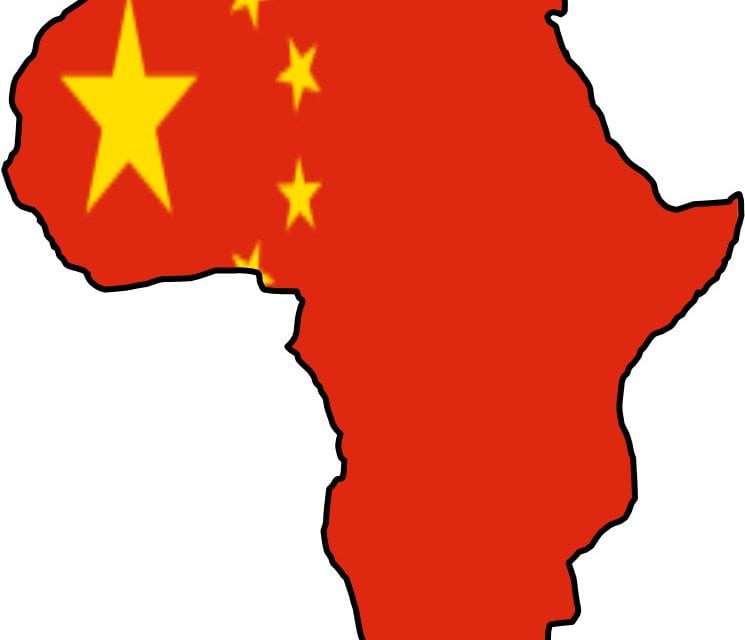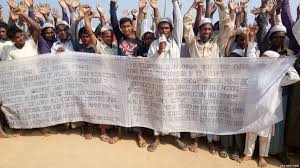Bézawit Tenna *
As the proverb says, “Give a man a fish, and you’ll feed him for a day. Teach a man to fish, and you have fed him for a lifetime.” That implies if you give a man the answer, he will only have a temporary solution. But if you teach him the principles that lead to the answers, he will be able to create his own solutions in the future. The difference is a temporary fix versus continuous growth. Manifesting a moment versus launching a movement. When it comes to China, their presence in Africa is only temporary. China, the second largest economy in the world, is partnering with numerous developing African countries such as Nigeria, Zambia, Djibouti, and Ethiopia to build infrastructure, increase economic growth, and create employment. However, China’s increased involvement in Africa is creating dependency, perpetuating unlawful labor conditions, and encouraging the corrupt nature of their government. As a result, the question then becomes whether China’s increased presence is promoting progression or stagnation throughout Africa.
China’s fascination with Africa goes back centuries. Starting from the 15th century, Zheng He, a Chinese navigator, led fleets to the East Coast of Africa and visited modern day Somalia and Kenya.[1]Afterwards, a number of African representatives began visiting China, which set up friendly ties among several African countries and China. The similarities between Africa and China, both having survived colonialism invasions, served as a symbolic tie between the two countries. Their struggle for independence created a connection that led to diplomatic ties, which in the early 2000’s shifted from diplomacy to economics.
While China emerged as an economic power, the lack of infrastructure in African countries created a stagnant economy. However, despite the stagnation of the economy, Africa is a resource-rich continent with oil, iron, uranium, gold, petroleum, rubber, copper, and zinc. In spite of the abundance in natural resources, the international community characterizes Africa as being underdeveloped. However, and contrary to popular belief, numerous countries within Africa have demonstrated constant economic growth. The United Nations predicts Africa’s economic growth will reach 3.5% in 2018 and 3.7% in 2019.[2]For example, countries like Ghana have capitalized on the production of gold, diamonds, manganese, and oil to become the fastest growing economies in the world. In the east, Ethiopia has expanded its agricultural production and coffee exports as well as its hospitality endeavors to improve their 2018 gross domestic product (GDP) by 7.5%. However, even with the growth in the economy, the lack of infrastructure in these countries represent Africa’s significant limitation to additional economic growth, making them susceptible to manipulation by China.
As China emerged as a significant world economic power, its own need for natural resources increased. To meet its demand, China is importing vast amounts of resources such as copper and oil from Africa to feed its production offurniture, wood processing, medicine, computers, transportation equipment, and textiles.They have stakes worth billions of dollars in everything from agriculture to construction. Nigeria, Angola, Ethiopia, Democratic Republic of Congo, Zambia, Uganda and Sierra Leone are some of their main economic partners. In Zambia alone, China has invested nearly $170 million in the mining sector, making them the highest user of copper in the world.[3]
China partnering up with countries like Zambia, in order to establish roads, bridges, dams and other necessities, results in local rules and regulations being neglected, thus leading to poor safety conditions for employees. For instance, at a Chinese-run mine in Zambia’s copper belt, employees must work for two years before they are able to obtain safety helmets even though ventilation below ground is poor and deadly accidents occur almost daily.[4]In this mine, most of the employees are Zambian youth. The lives of these citizens are extremely undervalued to the extent of not gaining access to primary safety tools until years after employment. This sends a message that money has a greater value in comparison to the lives of the Zambian employees. To avoid consequences such as fines, probation, and shutdowns, Chinese managers bribe union bosses with substantial amounts of money.[5]When the workers attempt to protest such autocracies, Chinese managers fired shotguns at the crowds, injuring dozens of people.[6]This is furthermore perpetuating the notion that the lives of the Zambian workers are insignificant.
China’s investments in Africa’s economy has also hindered political reforms in Zimbabwe. In 2017, China had voiced strong support for Prime Minister Robert Mugabe. Mugabe and his regime are the main perpetrators of gross human rights violations in Zimbabwe. Under Mugabe’s regime, rights such as freedom of speech have come to a halt. Citizens have been severely abused and killed for protesting, Mugabe also separated hundreds of thousands of city residents to the rural areas. This led to an estimated 700,000 citizens becoming internally displaced. The citizens are left with no respect for life, health, or alternative arrangements. Additionally, Mugabe has offered Chinese companies almost anything they want, regardless of payback. In return, China is investing in minerals, roads and farming, and supplying Mugabe with jets and other armaments.[7]Rather than condemning the Zimbabwean government, China’s silence on the neglect of Zimbabwean human rights indicates support for the government. China’s silence in turn enables them to navigate the Zimbabwean economy with support from the government.
China’s economic assistance is increasing unemployment and worsening job creation in Africa. In the midst of the investments, exports, and new infrastructure, China is blatantly ignoring its promise to bring about change. In particular, one Chinese company pledged to create more than 100,000 jobs in the poorest regions of Africa such as Rwanda, Kenya and Djibouti.[8] In spite of their promise, companies likeChina Nonferrous Metal Mining Group (CNMC)are referring Chinese citizens to open positions rather than recruiting Africans. In South Africa, 75,000 South Africans lost their jobs because of Chinese investment.[9]In Nigeria, China is manufacturing African fabric designs more cheaply than the local industry causing 80% of local companies to close.[10]This is problematic because local business are going out of business, resulting in citizens losing their jobs; hence, they are unable to keep up with the cost of living and provide for their families. This leads Africans with the only option of turning to the Chinese for work, perpetuating dependency rather than self-sufficiency in Africa. In the case of Zambia, China could have provided the state and other partners with a positive and long-lasting impact. Coaching and educating the citizens of the countries on valuable skills is a major tool that can advance countries like Zambia. It will serve as a way to create independence for generations to come, so when Chinese investments come to an end the countries are able to sustain the current economy without outside manipulation.
Chinese firms also practice illegal methods to achieve their goals. For instance, by law, mining on small plots of 25 acres or less is restricted to Ghanaian nationals. However, China continue to explore for gold in conjunction with local landowners, even though regulations have made it clear that such practice is illegal.[11]The methods in which they exploit the resources of these countries are endless and affect the local and domestic economy. Furthermore, cheap labor in Africa is at an all-time low, averaging from $44-$90 a month, with managers making around $90 a month. Despite the low wage, the responsibilities that comes with being a manager is excessive. For $90 a month, a manager oversees 100 workers, including 11 line supervisors.[12]If the staff make any mistakes, the wages get docked from the managers, taking away from the already low salary. This salary is severely low in comparison to the duties and responsibilities the job demands. Additionally, it is entirely not enough for the workers to afford the ever increasing cost of living in that is common in African countries.
Over the years, China’s hidden motives are becoming evident to more African countries. During a recent election in Zimbabwe, for example, opposition leader, Nelson Chamisa vowed to expel Chinese investors if he wins the election.[13]During an interview Chamisa stated that China is “busy asset-stripping the resources of the country.” He continued by stating that if elected, he will tell the Chinese the deals they signed are “unacceptable and they should return to their country.”[14]Thus indicating that an increasing number of Africans have less enthusiasm for China’s assistance. In addition, Sierra Leone’s new president, Julius Maada Bio, called China’s economic development in Africa “a sham with no economic and development benefits to the people.”[15]The intention behind China’s increased economic engagement in Africa has become transparent to Bio. China is luring countries into debt traps by lending them money for massive infrastructure projects. The realization of Chinese motives by Africans, especially politicians, leads to a movement to push out Chinese investors and draw focus on the construction of independent African countries.
The reason Chinese corporations are in Africa becomes evident: to exploit the people and take their resources. It’s the same thing European colonists did, they are squeezing Africa for everything it is worth. For the moment, the investments China is making in Africa is serving as a temporary solution by helping increase the economy. However, Africans are being run out of their homes due to vast production of factories. They are being utilized for cheap labor while being exposed to hazardous work conditions and accumulating billions of dollars in debt. African countries are dependent on China for infrastructure resources and monetary aid. If Chinese presence were to vanish from Africa, the countries would be left without a way to maintain a sustainable economy for themselves.
[1]CCTV(2002-12-24). “Zheng He’s Voyages”.
[2]Wenping He, “Partners in Development”, Beijing Review, No. 44, Nov.2, 2006
[3]“2017 World population”(PDF). 2017 World Population Data Sheet – Population Reference Bureau.
[4]Picker, Les. “The Economic Decline in Africa” https://www.nber.org/digest/jan04/w9865.html.
[5]Taylor, I. (2006). China and Africa. London: Routledge.
[6]”World Economic Situation and Prospects 2018″. United Nations Department of Economic and Social Affairs, Development Policy and Analysis Division. p. 106
[7]Mourdoukoutas, Panos. “What Is China Doing In Africa?” Forbes. August 06, 2018. https://www.forbes.com/sites/panosmourdoukoutas/2018/08/04/china-is-treating-africa-the-same-way-european-colonists-did/#6d638ef8298b.
[9]Lyman, Princeton. “China’s Rising Role in Africa.” Council on Foreign Relations. https://www.cfr.org/report/chinas-rising-role-africa.
[13]”Sierra Leone’s New President Called Chinese Projects a ‘sham’.” South China Morning Post. April 05, 2018.
*Disclaimer: The content contained in the following material is the sole ownership of the author and does not reflect the Towson University Journal of International Affairs nor Towson University in any respect whatsoever.







